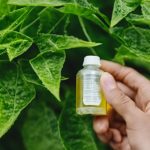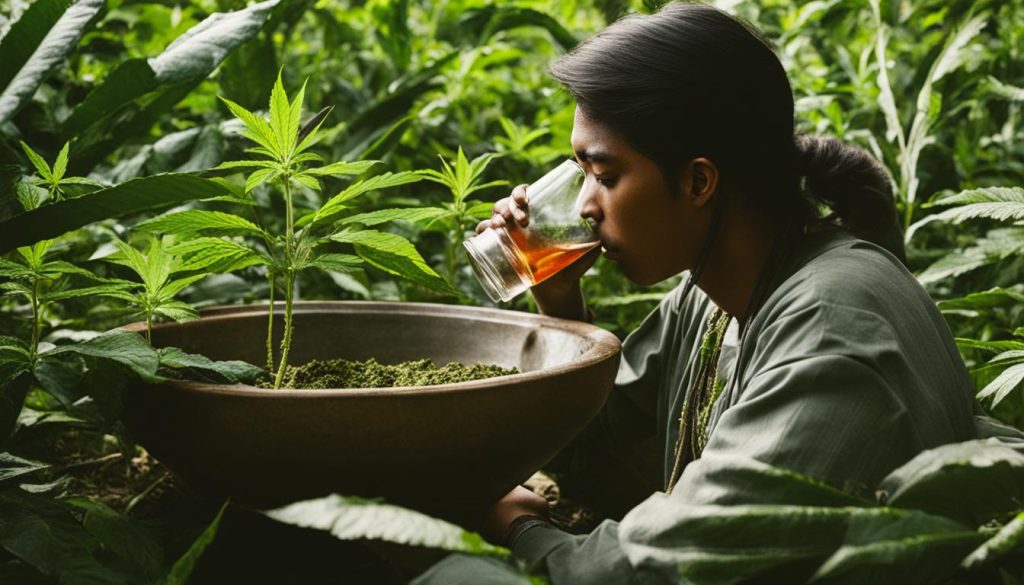
Kava consumption has become an area of interest in the realm of marijuana detox, as individuals seek holistic alternatives to aid in their recovery process. Kava, derived from the root of the Piper methysticum plant, has been used for centuries for its sedative and euphoriant properties. In recent years, it has gained traction as a potential treatment for anxiety, stress, and insomnia. However, concerns about the safety and effectiveness of kava have also arisen, particularly regarding its potential to cause liver problems.
Despite these concerns, kava is legally sold in the United States as a dietary supplement and is marketed as a sleep aid and muscle relaxant. This availability has led to an increased interest in exploring the relationship between kava consumption and marijuana detox. While some individuals may find relief from kava during their detox journey, further research is needed to fully understand the benefits and risks associated with its use.
Key Takeaways:
- Kava, derived from the root of the Piper methysticum plant, is gaining attention as a potential aid for individuals going through marijuana detox.
- While kava offers sedative and euphoriant properties, concerns about its safety and potential liver damage cannot be ignored.
- Kava is legally sold in the United States as a dietary supplement and is marketed as a sleep aid and muscle relaxant.
- Research is needed to determine the true relationship between kava consumption and marijuana detox.
- Individuals considering kava consumption should consult a healthcare professional and explore appropriate treatment options for addiction recovery.
Understanding Kava
Kava, also known as “awa” in Polynesian cultures, is a herbal substance derived from the root of the Piper methysticum plant. Referred to as the “intoxicating pepper,” kava has been used for centuries for its sedative, euphoriant, and psychoactive properties. Native islanders have traditionally consumed kava as a beverage or extract to induce relaxation and promote a sense of well-being.
Despite its psychoactive effects, kava is considered non-alcoholic. It has gained popularity in recent years as a potential alternative treatment for anxiety, stress, and insomnia. Marketed as a sleep aid and muscle relaxant, kava is available as a dietary supplement in the US, although its safety and effectiveness remain subjects of debate.
To better understand the properties of kava, it is essential to explore its active components, known as kavalactones. These compounds are believed to be responsible for the sedating and euphoric effects of kava. While research into kava’s benefits and potential risks continues, it is important to approach kava consumption with caution and seek guidance from healthcare professionals.
Kava’s Active Components: Kavalactones
Kava’s psychoactive properties can be attributed to a group of compounds called kavalactones. These components, found in the root of the Piper methysticum plant, are believed to interact with neurotransmitter receptors in the brain, resulting in the sedative and euphoriant effects of kava. While several kavalactones have been identified, six are considered the most biologically active: kawain, dihydrokawain, methysticin, dihydromethysticin, yangonin, and desmethoxyyangonin. Each kavalactone contributes to kava’s overall pharmacological effects, but the specific mechanisms of action are still under investigation.
Research suggests that different kavalactones may have varying effects on mood, sleep, and anxiety. For example, methysticin has shown potential anxiolytic properties, while yangonin and desmethoxyyangonin may contribute to muscle relaxation. However, the overall interaction and synergistic effects of kavalactones are still not fully understood.
The Importance of Quality Control
One significant challenge in studying kava’s effects is the lack of standardization and quality control in commercially available products. The concentration of kavalactones in different kava preparations can vary significantly, potentially impacting the overall effectiveness and safety. To ensure reliability and consistency, it is crucial to choose reputable manufacturers that adhere to strict quality control measures. Additionally, consulting with healthcare professionals familiar with kava can provide valuable guidance on proper dosages and potential interactions with other medications or substances.
| Kavalactone | Effects |
|---|---|
| Kawain | May contribute to muscle relaxation |
| Dihydrokawain | May have anxiolytic properties |
| Methysticin | May have anxiolytic properties |
| Dihydromethysticin | May contribute to muscle relaxation |
| Yangonin | May contribute to muscle relaxation |
| Desmethoxyyangonin | May contribute to muscle relaxation |
Uses of Kava
The main use of kava is to help with anxiety. Recent studies have suggested that kava may be as effective as benzodiazepine drugs, such as Xanax and Ativan, in reducing anxiety symptoms. Kava affects the brain and central nervous system, with its active ingredients, known as kavalactones, believed to be responsible for its effects. Research indicates that kava extracts containing 70% kavalactones can lower anxiety levels and potentially work as well as prescription anti-anxiety medications. Additionally, some individuals find that kava boosts their mood and helps with sleep. There have even been suggestions that kava could be used to treat attention deficit-hyperactivity disorder (ADHD) and aid in drug withdrawal.
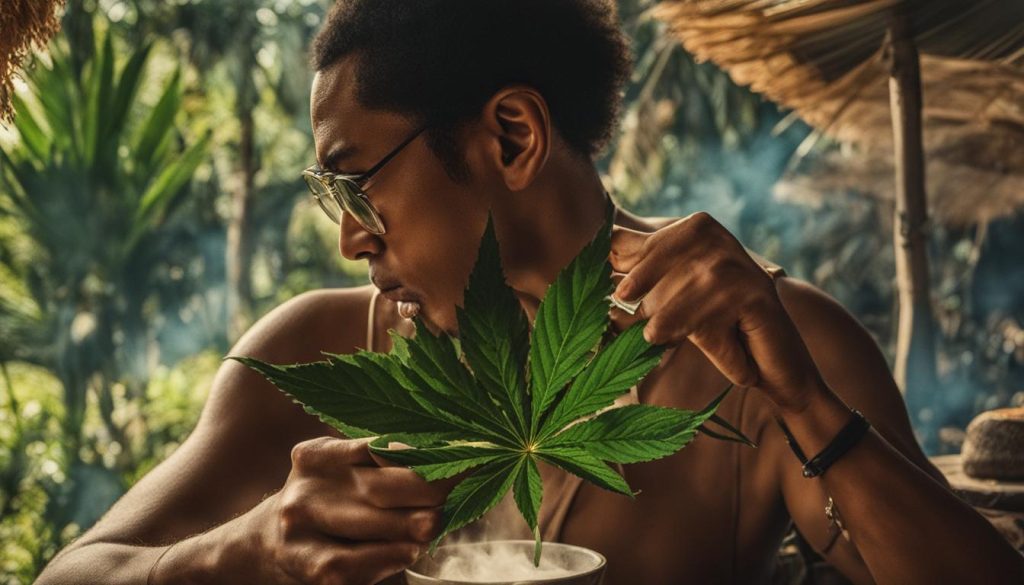
Table: Comparison of Kava and Benzodiazepines for Anxiety
| Kava | Benzodiazepines | |
|---|---|---|
| Mechanism of Action | Acts on GABA receptors in the brain | Enhances the effects of GABA in the brain |
| Efficacy | Potential effectiveness in reducing anxiety symptoms | Proven efficacy in reducing anxiety symptoms |
| Side Effects | Possible liver damage, mild sedation, upset stomach | Drowsiness, dizziness, potential for addiction |
| Availability | Legal as a dietary supplement | Prescription-only |
It’s important to note that while kava shows promise in managing anxiety, its use should be approached with caution. As with any substance, individual reactions and tolerances can vary. Some individuals may experience adverse effects, such as upset stomach or mild sedation. Additionally, kava can have interactions with certain medications, so it’s important to consult with a healthcare professional before starting kava consumption, especially if you are currently taking anti-anxiety medications or other drugs.
In conclusion, kava has been found to be potentially effective in reducing anxiety symptoms and may serve as an alternative to benzodiazepine drugs. However, the use of kava should be approached with caution due to potential risks and interactions. Consulting with a healthcare professional is crucial to ensure its safe and appropriate use.
How is Kava Consumed?
Kava, derived from the root of the Piper methysticum plant, can be consumed in various forms, both traditional and commercially available. Traditionally, kava root is chewed or turned into a pulp and mixed with water to create a beverage. This traditional method is still practiced in many Pacific island cultures. In modern times, kava is also available in liquid, tablet, tea, and tincture form, making it more accessible to a wider audience.
The taste of kava is often described as earthy and similar to dirt, which may not be palatable for everyone. Some users may also experience a numbing sensation on their lips and tongue after consuming kava. To maximize its effects, it is recommended to take kava on an empty stomach. However, it is essential to note that excessive consumption of kava can have potential side effects and risks, including liver damage, as mentioned in previous sections.
Here is a table summarizing the various forms in which kava can be consumed:
| Form | Description |
|---|---|
| Beverage | Kava root is chewed or mashed and mixed with water to create a traditional beverage. |
| Liquid Extract | Kava is available as a liquid extract, which can be added to water or other beverages. |
| Tablets | Kava is also available in tablet form, making it convenient for consumption. |
| Tea | Kava tea bags can be steeped in hot water to create a soothing and calming drink. |
| Tincture | Kava tincture is a concentrated extract that is taken orally, usually with a dropper. |
Kava consumption should be approached with caution, and it is advisable to consult a healthcare professional before starting kava consumption, especially for individuals with existing liver disease or those taking medications that may affect the liver.
Kava Effects and Abuse
Kava consumption can have various effects on the body and mind. It is known for its ability to reduce anxiety, improve mood, promote better sleep, and induce relaxation. Users often describe a sense of euphoria and heightened relaxation similar to the effects of alcohol and benzodiazepines. However, unlike alcohol, kava does not impair cognition, making it an attractive alternative for those seeking anxiety relief without cognitive impairment.
While kava is generally considered non-addictive, it is important to note that some individuals may abuse the substance. This can involve taking higher doses, mixing it with other drugs or alcohol, or using it to intensify the effects of other central nervous system depressants. Such abuse can lead to serious health complications, including abdominal cramping, breathing difficulties, and impaired cognitive function. Therefore, it is crucial to use kava responsibly and in moderation.
“Kava has become a popular choice among individuals seeking relaxation and anxiety relief. Its effects can be similar to those of alcohol and benzodiazepines, but without impairing cognitive function.”
It is also worth noting that excessive and prolonged use of kava has been associated with liver damage and failure. While the exact mechanisms are not yet fully understood, it is important to be aware of the potential risks, especially for individuals with pre-existing liver conditions or those taking medications that may affect the liver. If you experience symptoms such as jaundice, fatigue, or dark urine after consuming kava, it is essential to seek medical attention immediately.
| Effects of Kava | Abuse Potential | Liver Safety |
|---|---|---|
| Reduced anxiety | Some individuals may abuse kava by taking higher doses | Excessive and prolonged use of kava can lead to liver damage |
| Improved mood | Mixing kava with other drugs or alcohol | Risk of liver failure |
| Better sleep | Using kava to intensify the effects of other central nervous system depressants | Consult a healthcare professional if experiencing liver-related symptoms after consuming kava |
| Increased relaxation |
The Dangers of Kava
Kava, despite its potential benefits for anxiety and insomnia, is not without its risks. One of the most significant concerns is its association with liver damage and failure. Regular consumption of kava, even for short periods, has been linked to severe liver toxicity, leading to the need for liver transplants and, in some cases, even death. Symptoms of liver damage can include jaundice, fatigue, and dark urine. The exact mechanisms by which kava causes liver toxicity are still not fully understood, but factors such as its interaction with liver enzymes and direct damage to liver cells have been suggested. It is also worth noting that concurrent alcohol consumption may exacerbate the risk of liver damage.
To further emphasize the potential risks of kava, it is important to consult a healthcare professional before using this substance, particularly for individuals with existing liver disease or those taking medications that may affect the liver. They can provide personalized guidance and help weigh the potential benefits against the potential risks. Monitoring liver function through regular check-ups is crucial for those who choose to use kava. It is essential to prioritize safety and be aware of the possible dangers associated with kava consumption.
“Regular consumption of kava, even for short periods, has been linked to severe liver toxicity, leading to the need for liver transplants and, in some cases, even death.”
Our commitment to providing accurate information means we must emphasize the importance of responsible use and informed decision-making when it comes to kava consumption. The potential risks associated with liver damage should not be taken lightly, and caution should be exercised, especially for individuals with pre-existing liver conditions. It is crucial to prioritize our health and make informed choices that will ensure our well-being.
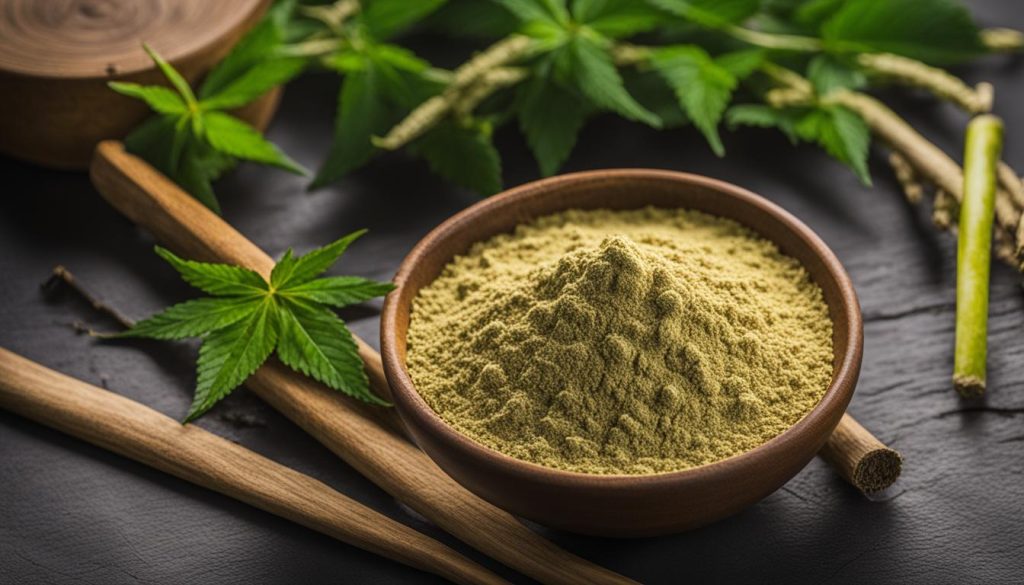
Let us not forget that while kava may offer potential benefits, there are alternatives available that can help manage anxiety and aid in detoxification without the associated risks. Consulting with healthcare professionals and exploring other treatment options can provide a comprehensive approach to addressing the challenges of anxiety and detoxification, while minimizing the potential risks to our health.
Is Kava Addictive?
There is ongoing debate about whether kava is addictive. While some individuals may experience cravings and withdrawal symptoms when discontinuing kava use, there is no clear scientific evidence to support its addictive potential. However, individuals with a history of substance abuse may be more susceptible to developing an addiction to kava. It is essential to approach kava use with caution, starting with low doses and monitoring for any signs of addiction. If addiction to kava is suspected, it is crucial to seek help from a qualified medical professional.
Understanding Kava Addiction
Kava addiction is a complex topic that requires careful examination. While some argue that kava’s euphoric effects can lead to psychological dependence, others believe that the risk of addiction is minimal. The reality lies somewhere in between, with individual factors playing a significant role. Those who have a propensity for addiction or already struggle with substance abuse may be more vulnerable to developing a kava addiction.
“It is essential to approach kava use with caution, starting with low doses and monitoring for any signs of addiction.”
Risks and Withdrawal Symptoms
Although kava addiction may not be well-documented, the potential risks and withdrawal symptoms should not be ignored. Abruptly stopping kava use after a period of heavy consumption can lead to a range of withdrawal symptoms, including anxiety, irritability, restlessness, and cravings. These symptoms can be distressing and may require professional guidance to manage effectively. It is crucial to seek medical help when experiencing kava withdrawal symptoms to ensure a safe and supportive recovery process.
Ultimately, the question of kava addiction warrants further research and exploration. While it may not be as well-studied as other substances, it is essential to approach kava use responsibly and be aware of the potential risks involved. By staying informed and seeking professional guidance when needed, individuals can make informed decisions about their kava consumption and ensure their overall well-being.

Treatment Options for Addiction Recovery
In order to effectively address addiction recovery, it is important to consider a range of treatment options. While kava consumption may offer some benefits for the body and mind, it should not be considered a standalone solution for addiction recovery. We recommend seeking professional care, especially for individuals with severe substance use disorders. Here are some common treatment options to consider:
- Inpatient residential treatment: This option provides a structured environment with 24/7 support. It allows individuals to focus solely on their recovery, away from triggers and temptations.
- Outpatient treatment: This option allows individuals to receive treatment while still living at home. It provides flexibility and accessibility, with regular counseling sessions and support groups.
- Medically assisted detoxification: This process can help manage withdrawal symptoms and cravings by providing medications under medical supervision. It ensures a safe and comfortable transition towards sobriety.
- Therapy: Various forms of therapy, such as cognitive-behavioral therapy (CBT), dialectical behavior therapy (DBT), and motivational interviewing (MI), can address underlying issues contributing to addiction. Therapy can provide individuals with coping mechanisms, emotional support, and tools for relapse prevention.
It is crucial to choose the treatment option that best suits the individual’s needs and circumstances. A combination of different approaches may be necessary to achieve long-term recovery. Seeking professional guidance and support is highly recommended throughout the addiction recovery process.
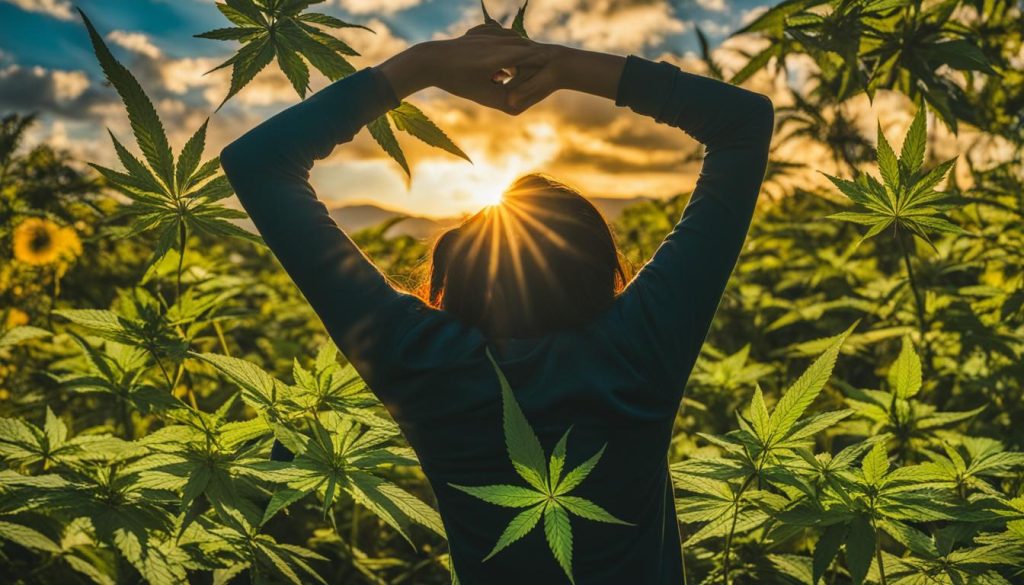
Online Addiction Counseling
We understand that seeking help for addiction can be a daunting process, which is why we offer convenient and accessible online addiction counseling services. At BetterHelp, we provide confidential and professional counseling from licensed therapists who specialize in addiction and mental health. Our platform allows you to receive support and guidance from the comfort of your own home, eliminating the barriers of distance and transportation.
Our online addiction counseling sessions are tailored to your individual needs, offering a personalized approach to recovery. Through video, phone, or messaging sessions, you can connect with a therapist who will work with you to develop coping strategies and explore the underlying issues contributing to your addiction. Whether you’re seeking help for substance abuse, gambling addiction, or other addictive behaviors, our experienced counselors are here to support you.
Online addiction counseling provides a flexible schedule that fits into your daily routine, making it easier to prioritize your recovery. It also allows you to maintain your privacy and anonymity, which can be important for individuals who may feel uncomfortable seeking help in traditional settings. With BetterHelp, you can access professional addiction counseling anytime, anywhere, giving you the support you need on your journey to recovery.
Benefits of Online Addiction Counseling with BetterHelp
- Convenient and accessible: Access professional counseling from the comfort of your own home, eliminating the need for travel or commuting.
- Flexible scheduling: Choose from video, phone, or messaging sessions that fit into your busy schedule.
- Privacy and anonymity: Maintain your privacy and seek help without the fear of judgment or stigma.
- Personalized approach: Work with a licensed therapist who specializes in addiction to develop coping strategies tailored to your individual needs.
- Supportive and compassionate environment: Receive guidance and support from experienced counselors who are dedicated to your recovery.
Don’t let the barriers of traditional therapy prevent you from seeking the help you need. Take the first step towards recovery with online addiction counseling at BetterHelp. Our licensed therapists are here to support you every step of the way.
Conclusion
In conclusion, kava consumption can be considered as a potential aid for individuals going through marijuana detox. The sedative and euphoriant properties of kava offer holistic alternatives to benzodiazepine drugs for managing withdrawal symptoms such as anxiety, stress, and insomnia.
However, it is crucial to approach kava consumption with caution due to the safety concerns regarding potential liver damage. Despite being legally sold as a dietary supplement in the US, it is recommended to consult a healthcare professional before starting kava consumption, especially for individuals with existing liver disease or taking medications that may affect the liver.
Furthermore, while kava may provide some relief during marijuana detox, it’s important to consider individual needs and seek appropriate treatment options for addiction recovery. This may include inpatient residential treatment, outpatient treatment, medically assisted detoxification, and therapy, depending on the severity of the substance use disorder.
We must emphasize the importance of responsible kava consumption and seeking professional help when needed. Withdrawal from marijuana can be challenging, and it is essential to have a comprehensive approach to recovery that addresses not only the physical symptoms but also the underlying psychological and emotional aspects of addiction.
FAQ
Is kava safe to consume?
While kava is legally sold as a dietary supplement in the US, there are concerns about its potential liver damage. It is important to use kava responsibly and consult a healthcare professional before starting kava consumption.
How is kava consumed?
Kava can be consumed as a beverage or extract. Traditionally, the root is chewed or turned into a pulp and mixed with water. In modern times, kava is available in liquid, tablet, tea, and tincture form.
What are the effects of kava?
Kava consumption can result in reduced anxiety, improved mood, better sleep, and increased relaxation. Users often describe a sense of euphoria and heightened relaxation, similar to the effects of alcohol and benzodiazepines.
Is kava addictive?
While some individuals may experience cravings and withdrawal symptoms when discontinuing kava use, there is no clear scientific evidence to support its addictive potential. However, individuals with a history of substance abuse may be more susceptible to developing an addiction to kava.
What are the dangers of kava?
Kava has been associated with significant safety concerns, particularly regarding liver damage and failure. Regular consumption of kava, even for short periods, has resulted in the need for liver transplants and, in some cases, death. It is important to be cautious when using kava, especially if you have existing liver disease or are taking medications that may affect the liver.
What are the treatment options for addiction recovery?
If an individual has a severe substance use disorder, professional care may be necessary. Treatment options for addiction recovery include inpatient residential treatment, outpatient treatment, medically assisted detoxification, and therapy.
What is online addiction counseling?
Online addiction counseling is a convenient and accessible option for individuals seeking professional help for addiction. Platforms like BetterHelp offer confidential and professional counseling services for addiction and mental health, allowing individuals to receive support and guidance from licensed counselors from the comfort of their own homes.







